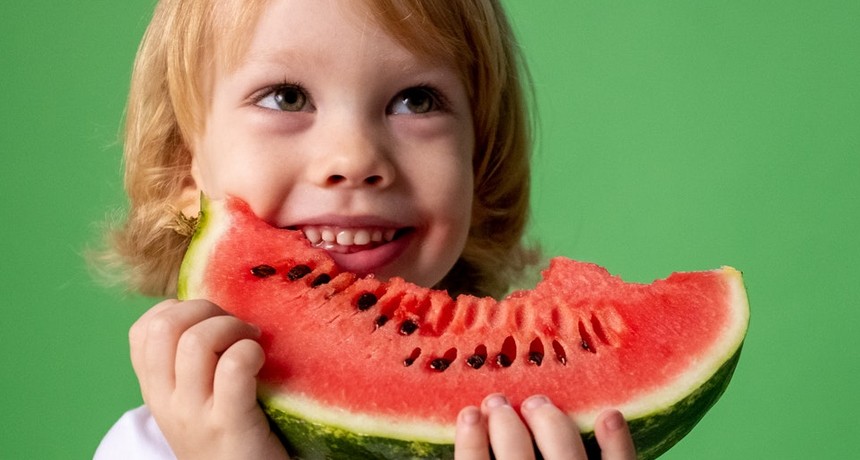Here at AAPRI and the Center for Functional Medicine, we talk a lot about the connection between gut health and asthma and allergies—for good reason. There’s no denying that a healthy gut microbiome is essential in supporting a strong immune system and for overall health and well-being. Gut health plays a key role in keeping children mentally and physically healthy, too—reducing the risk of illness, disease, and allergies. Good gut health starts with eating healthy foods.

Children’s gut health
The gut microbiome is established in the early years of life and by the age of 4 or 5, it becomes well established. While the gut’s primary function is to aid digestion, remove waste, and aid in the absorption of nutrients, it also influences the immune system and communicates with the rest of the body, particularly the brain. While everyone’s microbiome is unique, diet is responsible for up to 75% of the variation in the microbiome.
- Absorption of nutrients – Children get the most nutrition out of the food they’re consuming when they have a healthy gut. Iron, proteins, carbohydrates, and fats are crucial for growing bodies.
- Elimination of waste – The gut removes waste from the body, which involves supporting liver function and regular bowel movements by eating plenty of fiber. Vegetables, fruits, and whole grains are the key to healthy gut bacteria for kids.
- Immune system support – As the main entry point for germs to get into the body, the gut is your child’s best defense against sickness. “There’s research that suggests that a poor balance of bacteria in the gut during early childhood can increase the risk of gut-related allergies, asthma, and eczema,” says Amanda Matteson, PA-C and Director of the Center for Functional Medicine.
Getting kids to eat healthy
Remember the old saying, “You can lead a horse to water, but you can’t make him drink?” When it comes to getting your child to eat healthy, most parents have probably experienced this truth. Here are some quick tips for parents to help your child eat healthy:
- Be a good role model and eat healthy foods yourself.
- Make meal times relaxing and fun for the whole family.
- Encourage good behavior and eating choices with positivity (“wow, you ate all of your green beans—good job!”); avoid negative reactions to bad behavior (such as when a toddler throws food on the floor).
- Invite your kids to help choose and prepare the food; kids are much more invested in the meal when they’re active participants.
- Educate your child about healthy eating using age-appropriate books and games.
Foods that Boost Gut Health

- Fresh fruits and vegetables (“eat the rainbow”)
- Yogurt (plain whole milk is best; avoid yogurt with added sugar)
- Fermented veggies like pickles and sauerkraut
- Whole grain breads and cereals like oatmeal
- Legumes and starchy vegetables like potatoes (these contain prebiotics that support gut health)
- Meats, fish, and plant-based proteins
- Healthy fats and oils like avocado and coconut
Avoid: foods that are heavily processed such as packaged foods and foods that have high amounts of added sugar.
Strike the right balance
When faced with a child who refuses to eat their veggies, it’s tempting to resort to bribery, such as “if you eat your spinach, you can have some ice cream,” which sends the wrong message. Instead give praise and positive reinforcement for trying new foods and eating the green stuff. “We can’t eat healthy 100% of the time,” says Amanda. “But we can do our best to make smart food choices, learn more about what we’re putting into our bodies and our children’s bodies, and strike a healthy balance.”
Contact us to schedule a consultation to find out how we can help boost your child’s gut health through healthy eating. Amanda and our dedicated team are ready to answer your questions about your child’s health.

